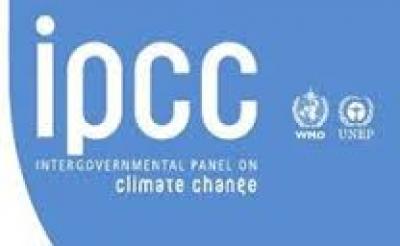IPCC Workshop on Impacts of Ocean Acidification on Marine Biology and Ecosystems

Posted by
Hannah RobinsonPublished
Abstract
From the Executive Summary:
Since the publication of the Fourth Assessment Report (AR4) of the Intergovernmental Panel on Climate Change (IPCC), ocean acidification research has been advancing rapidly, evaluating the effects of increasing atmospheric CO2 concentrations on ocean chemistry and the resulting biological impacts. Working Group II and Working Group I (WGII and WGI) of the IPCC held a joint Workshop on Impacts of Ocean Acidification on Marine Biology and Ecosystems to summarize the body of science on ocean acidification and its impacts, as timely input to the IPCC Fifth Assessment Report (AR5).
The workshop consisted of four primary activities, interspersed with plenary discussion. First, through fourteen keynote presentations, invited experts provided a synthesis of the state of knowledge on ocean acidification and its impacts. The presentations summarized scientific understanding, identifying both what is known and what key uncertainties remain, for the overarching topics of the changing chemistry of the oceans, impacts of ocean acidification for individual organisms, and scaling up to ecosystems. Second, in six Breakout Groups, participants discussed and addressed questions related to cross-cutting themes:
- detection and attribution of ocean acidification and its impacts;
- reconciling apparently contradictory observations;
- spatial and temporal scales of variability and rates of change;
- learning from the past and present to predict the future;
- understanding the roles of multiple stressors; and
- scaling up to humans: the socioeconomics of ocean acidification.
An additional ad hoc Breakout Group considered the glossary entries for “ocean acidification” that were used in the AR4, outlining considerations and potential improvements for the AR5. Third, workshop participants had the opportunity to provide brief oral highlights of their recent research results, discussing these results further during two poster sessions. Finally, the workshop concluded with three synthesis presentations that summarized the perspectives presented during the workshop for the overarching topics listed above, emphasizing the state of knowledge and important open questions.
This workshop report contains short reports written by the Chair and Rapporteur of each Breakout Group and by the presenters of the workshop’s synthesis presentations. Additionally, it includes abstracts of all keynote and poster presentations, along with other workshop materials distributed to participants before the meeting. Below, short summaries of the discussions from the Breakout Group and synthesis presentations are given, with further details provided in the subsequent sections of this workshop report.
Citation
IPCC. (2011) Workshop report of the Intergovernmental Panel on Climate Change workshop on impacts of ocean acidification on marine biology and ecosystems. Stanford, California: IPCC Working Group II Technical Support Unit.
